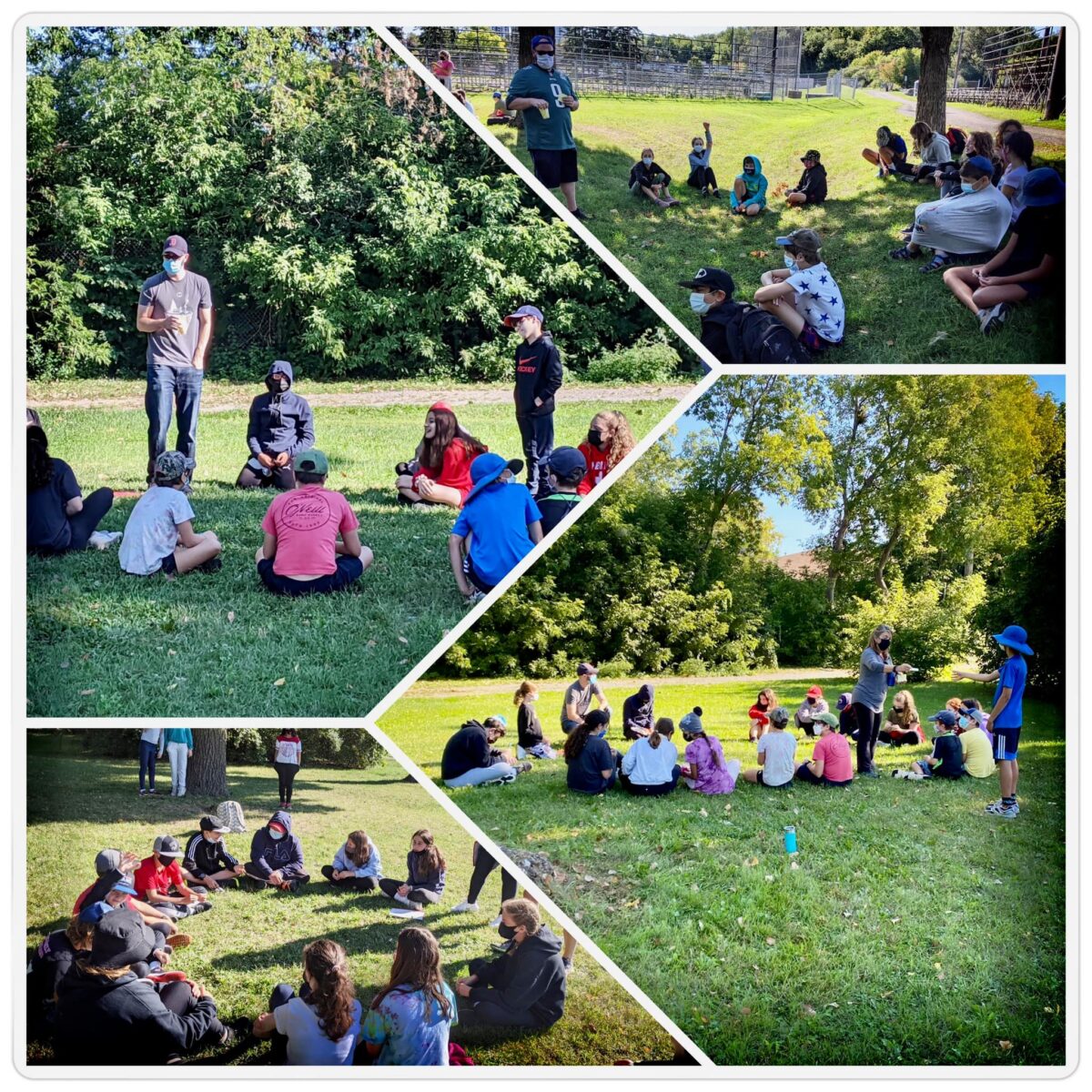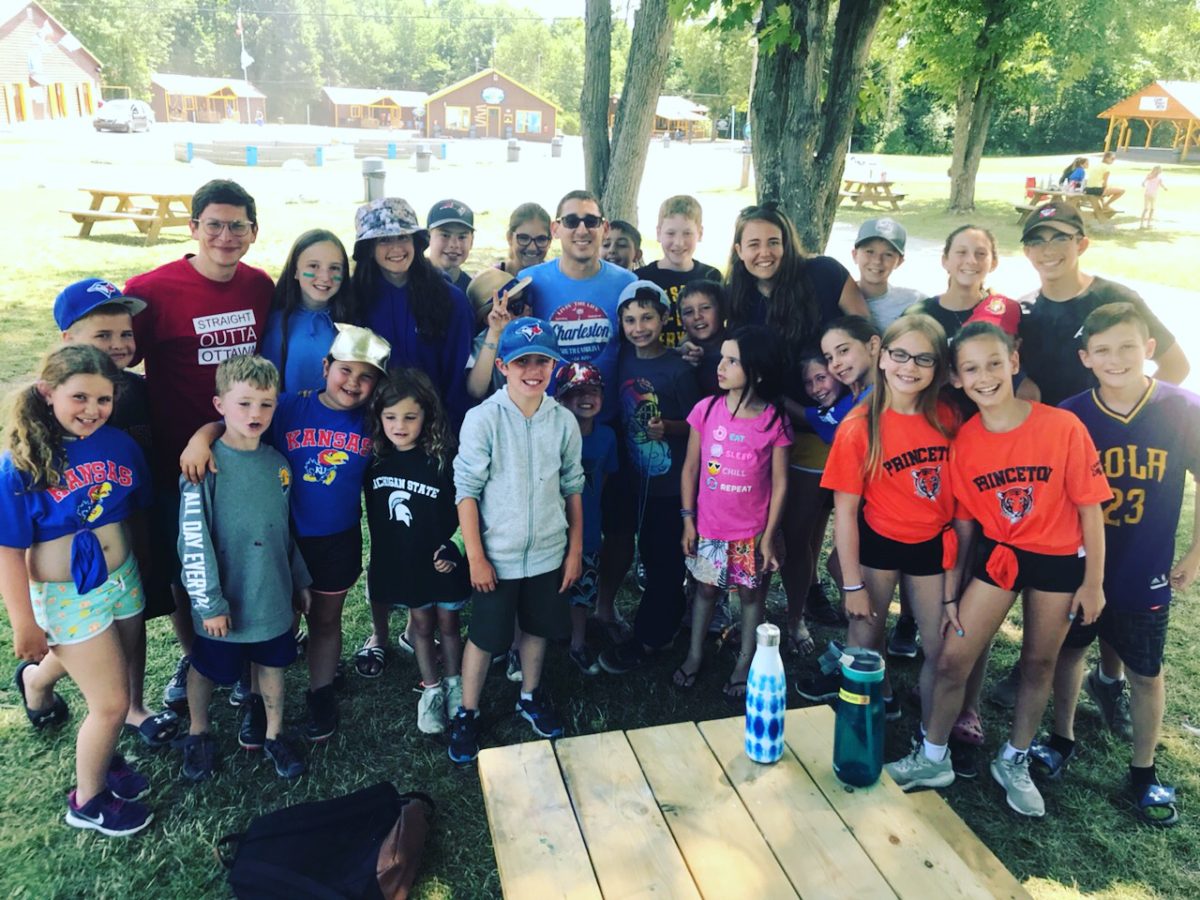How did we manage to pull off an action-packed, COVID-friendly, 4th Annual Middle School Retreat in the middle of the Jewish High Holidays? Other than a lot of hard work by a lot of people, the grace of the weather gods and a lot of luck, we not only managed to pull it off, but it was an amazing three days that almost felt like things were nearing being almost back to some kind of normal. We were not able to restore the full retreat by sleeping out and we had all kinds of masking and cohorting to keep everyone safe and healthy, but what we did do was way closer to normal than last year’s was able to be. And that felt great.
Our theme for The 2021 Middle School Retreat was the same as it was for Faculty Pre-Planning Week as it is for the whole school for the whole year: (Re)Building Community. Over three days, we engaged in three different peulot (informal Jewish educational programs) where our students, by class, by grade, and as a full middle school had a chance to review and lean into the Jewish values that will enable us to (re)build a healthy and constructive middle school community and culture. I sometimes think that our school culture is a three-legged stool, with our North Stars, our “7 Habits” and our Jewish Values keeping us steady and stable. I was very impressed by the level of engagement and the quality of conversation – whether we were at a park, on the river or in the Gym – that our students contributed to this part of the experience.
In between the educational touchpoints, our retreat was spent better getting to know each other through both teacher and student-led (Grade 8) mixers. We played soccer baseball [Expat Note: That’s Canadian for kickball!]. We crushed an obstacle course. We barbecued a yummy dinner. We learned the “Legend of the Schnupencup”. We spent an amazing day rafting the rapids on the river. And like an entire summer of camp in three days, we ended it all with a slideshow.
But instead of me telling you about it, how about I show you the highlights?
[Please note that our masking and social distancing policies are specific to pods of students, location and activity. Where you see instances of students either unmasked and/or not socially distanced in this video, they are always aligned with our school’s COVID protocols.]
A huge thank-you goes out to our Student Life Coordinator, Deanna Bertrend, for all her hard work putting this together! Putting the Middle School Retreat together isn’t easy in a normal year, but doing it during the second week of a still-pandemic school year, in between Rosh Hashanah and Yom Kippur, and having to adapt to all kinds of protocols…well that’s a lot. Our students and school are grateful for her leadership.

The crazy timing of this year’s holidays means that I will not have my annual remix of my Sukkot blog post where I encourage you to more fully participate in my most favourite of all of the Jewish holidays. But I can direct you to last year’s post in the hope that it may inspire a new Sukkot tradition for you and your family this year. And since I am unlikely to blog before Sukkot begins, let me at least offer this thought: Let’s not let this holiday season end with self-denial and forgiveness – as important and meaningful as those things are. Let’s end with joy. From my family to yours: Chag sameach!


